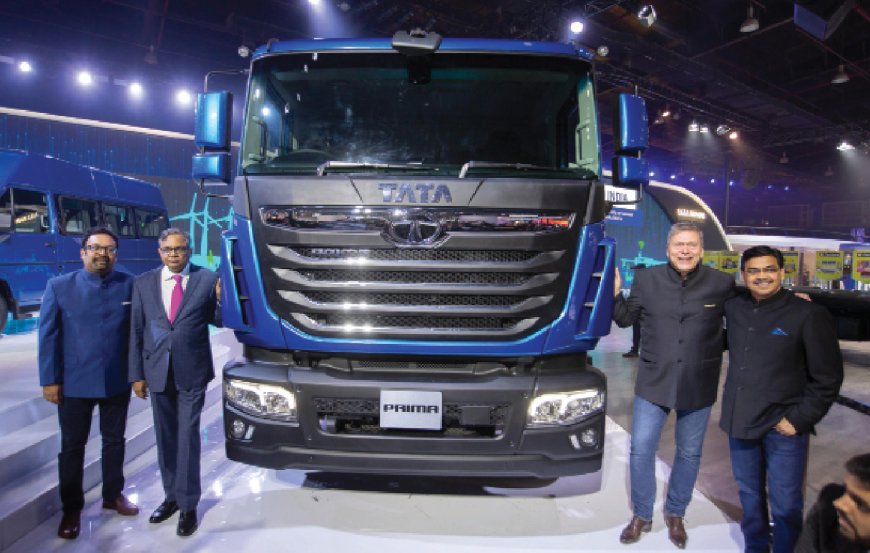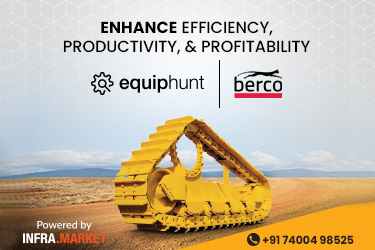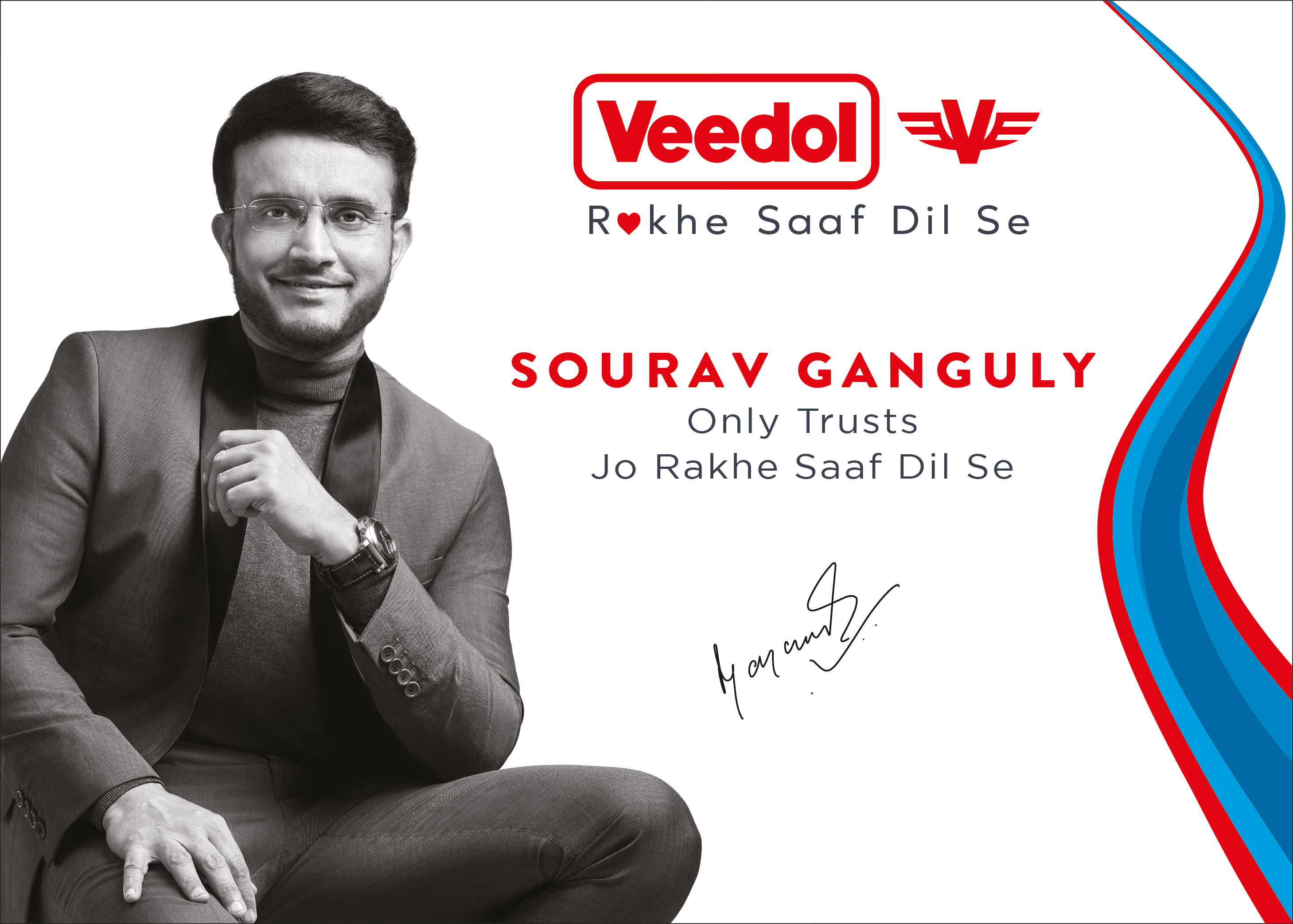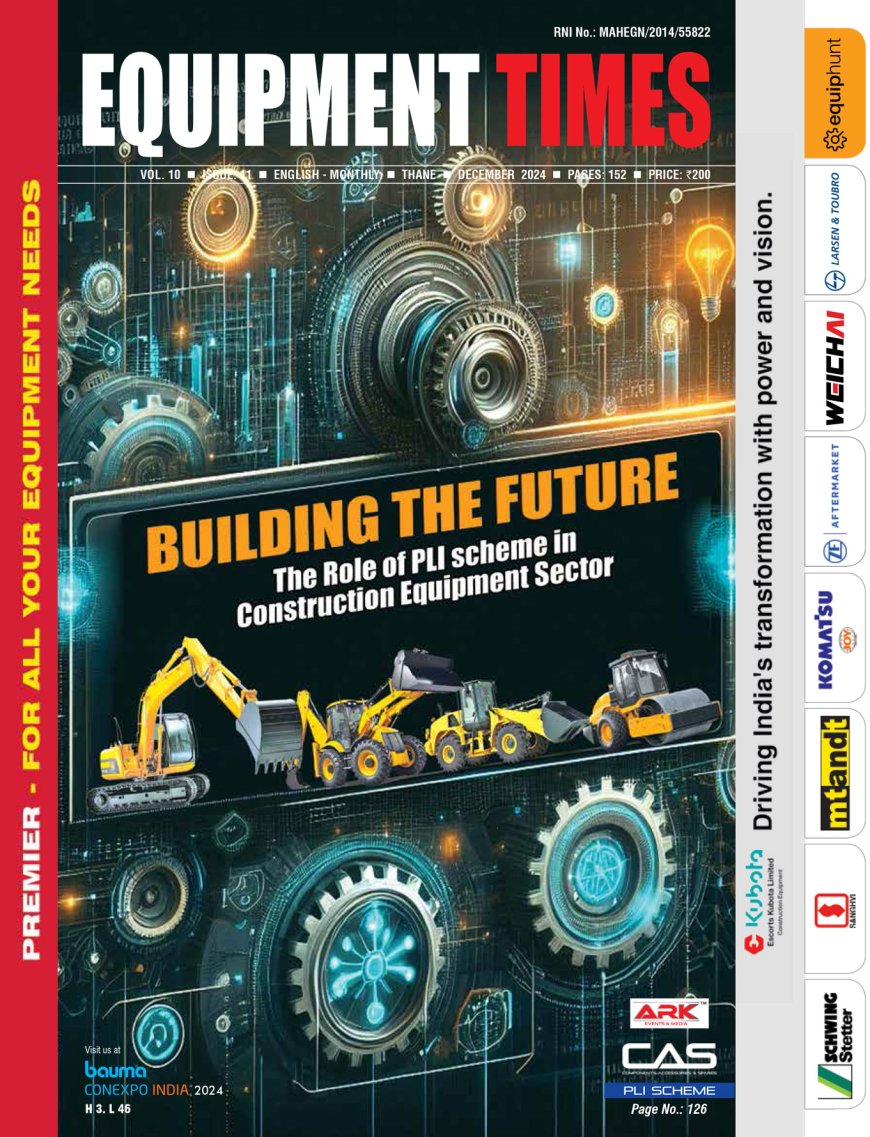The international business is a learning ground for us to prepare for bigger challenges
Rudrarup Maitra Vice President, International Business Commercial Vehicles, Tata Motors The concept of ‘Make in India’ for the world seems to have caught up with most of the OEMs. What is your take on this?


Rudrarup Maitra
Vice President, International Business Commercial Vehicles, Tata Motors
The concept of ‘Make in India’ for the world seems to have caught up with most of the OEMs. What is your take on this? Indian CE industry taken as whole what is the current growth and expected CAGR in export?
‘Make in India’ has been the priority of the Government for greater value addition and employment generation in the country. The company has been manufacturing mobility solutions for the world since 1961 with presence in over 40 countries. Tata Motors is currently India’s largest and only OEM offering extensive range of integrated, smart and e-mobility solutions.
With a focus on engineering and tech enabled automotive solutions catering to the future of mobility, Tata Motors is a market leader in India’s commercial vehicles and amongst the top four in the passenger vehicles market. The company’s innovation efforts are focused on developing pioneering technologies that are sustainable as well as suited to the evolving aspirations of the market and customers.
‘Make in India’ also means designed and engineered in India. We are strengthening our capabilities and our engineering footprint to create intellectual property suitable for export. We recently inaugurated our state-of-the-art ‘Advance Power Systems Engineering Tech Centre’ at the Engineering Research Centre (ERC) Pune, India. The futuristic tech centre will play a key role in engineering, testing and developing cutting-edge powertrain solutions for all its products, bringing in synergies across PV, CV and EV businesses.
Brief us on the scope and potential for export of your range of products?
Tata Motors is a global company with global aspirations. We have been expanding our international footprint, established since 1961.
Our commercial and passenger vehicles are already being marketed in several countries in Africa, the Middle East, Europe, South East Asia, South Asia, South America, and Ukraine. These products are adapted to meet the extreme climatic conditions, terrains, regulatory norms and varying customer requirements across geographies. Given the technological and customised requirements for different markets, the international business operations help Tata Motors to be ahead of technology curve for tech readiness in India and India-like markets.
Besides, the Tata Motors Group’s international business also includes Tata Daewoo Commercial Vehicle Company in South Korea, Tata Motors (SA) (Proprietary) in South Africa and PT Tata Motors, Indonesia. Tata Motors itself has franchisee/JV assembly operations in Ukraine, Bangladesh, Myanmar, Vietnam, Tunisia, Ethiopia, Malaysia, South Africa, Senegal, Kenya and Nigeria.
In the last 60 years, Tata Motors has sold over nine million vehicles across the world, including India, from its portfolio of trucks, buses, passenger cars and utility vehicles. Tata Motors plans to enhance its presence in emerging markets, with a focus on ASEAN, Asia, Africa, Middle East and Latin America, on the back of a new range of world class products like the Tata Intra, Super Ace, Xenon, Ultra and Prima range of trucks and buses.
Could you brief us on the roadmap and strategies initiated to become a successful player in the global markets?
The international business is a learning ground for us to prepare for bigger challenges of the future. By competing in markets that are far more demanding than India, we are able to be ahead of the technology curve for tech readiness in India and India-like markets.
Our mission is to be passionate in anticipating and providing the best vehicles and experiences that excite our customers globally. Intense product focus, quality manufacturing, enriched purchase experience and exceeding customer service expectation are the pillars on which our strategy is based.
Our best-in-class operating costs due to optimal sourcing and manufacturing processes, after-sales support with the assistance of local teams, have strengthened Tata Motors’ foothold in international markets. The company has managed to be entrenched in these markets by establishing and maintaining strong relationships across the value chain. The development and deployment of suitable high-quality products that cater to the market demand in these regions have prompted the company’s success internationally.
Which are the major markets that you focus on and what are the factors contributing to it?
Are there separate investment / R&D efforts for this? Could you brief us on the same?
Internationally, Tata commercial and passenger vehicles are marketed in countries spread across Africa, the Middle East, South Asia, South East Asia, South America, Australia, CIS and Russia with investments made to develop market relevant products. We always analyse the potential of the commercial vehicle industry in the market and our ability to address the market requirements through differentiated products to be a significant player.
Do you have a separate product range for the global market?
We constantly benchmark ourselves against the best in the world to see how we can continue to keep improving the quality of our products and services to keep the customer and the industry delighted.
At the current juncture, we are consciously making only the most important market specific changes to meet the emission, safety, operating condition related mandates. If a market offers considerable potential for additional volume through specific changes, we definitely consider them on a case-to-case basis.
Tata Motors leverages the India operations for launching products across the world and further develops the market specific application across product Lines, addressing unique customer requirement. Tata Motors Ultra and Prima modular platforms have been leveraged across various markets to compete against established global OEMs across various markets.
As the global markets are highly competitive, especially in terms of quality of the product and backup support, how have you ensured the same to cut a niche in those markets?
What our vehicles bring to the market are a winning combination of power-packed performance and lower lifecycle cost of ownership. In addition to the reliability and ruggedness that are necessary for operating in local weather conditions and terrains.
Our wide range of offerings allows us to provide customers with the best fit vehicle. Our local tie-ups with dealers and distributors give us the ability to provide our customers with superior service experience.
With an established presence in most geographies, and a dominant share of the commercial vehicle segment in various markets, Tata Motors is well on its way to realising its global expansion strategy.
What do you think are the major challenges that you face in the global markets and how do you address these challenges?
- Diverse culture
- High custom and import duty
- Political uncertainty and changes in trade policy
- Complexity of custom clearance/shipping
- Brand prominence & stickiness:
- Availability of suitable differentiated products
- Currency fluctuation in International market
- Foreign laws and regulations
- Language barriers
- Transit time for distant geographies
How do you assess the impact of the Budget 2020 on the CE industry? Also tell us on the outlook especially the product range that you deal with?
Budget 2020 allocated significant sums aimed at agriculture, health and infrastructure which will help provide a boost to the economy. The allocations for agriculture, irrigation and rural development will spur the rural economy and in the long term will benefit the CV industry.
Further allocation of Rs. 100 lakh crore for infrastructure over the next five years, including increased allocation of funds for roads and highways along with the proposal to develop five new smart cities with states in PPP mode is another positive. We now have to wait and see if these announcements will be able to revive demand.
Hits: 18










